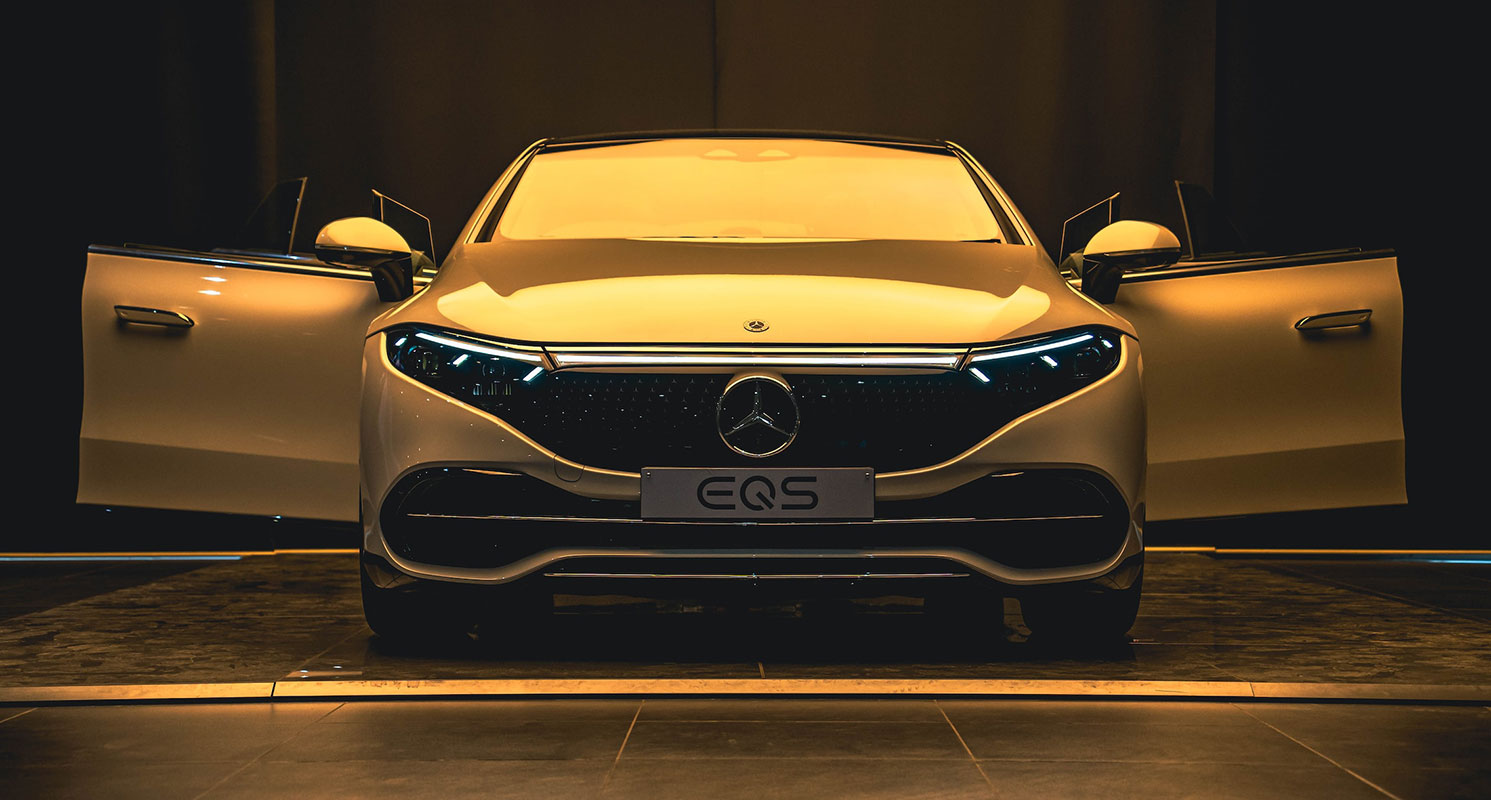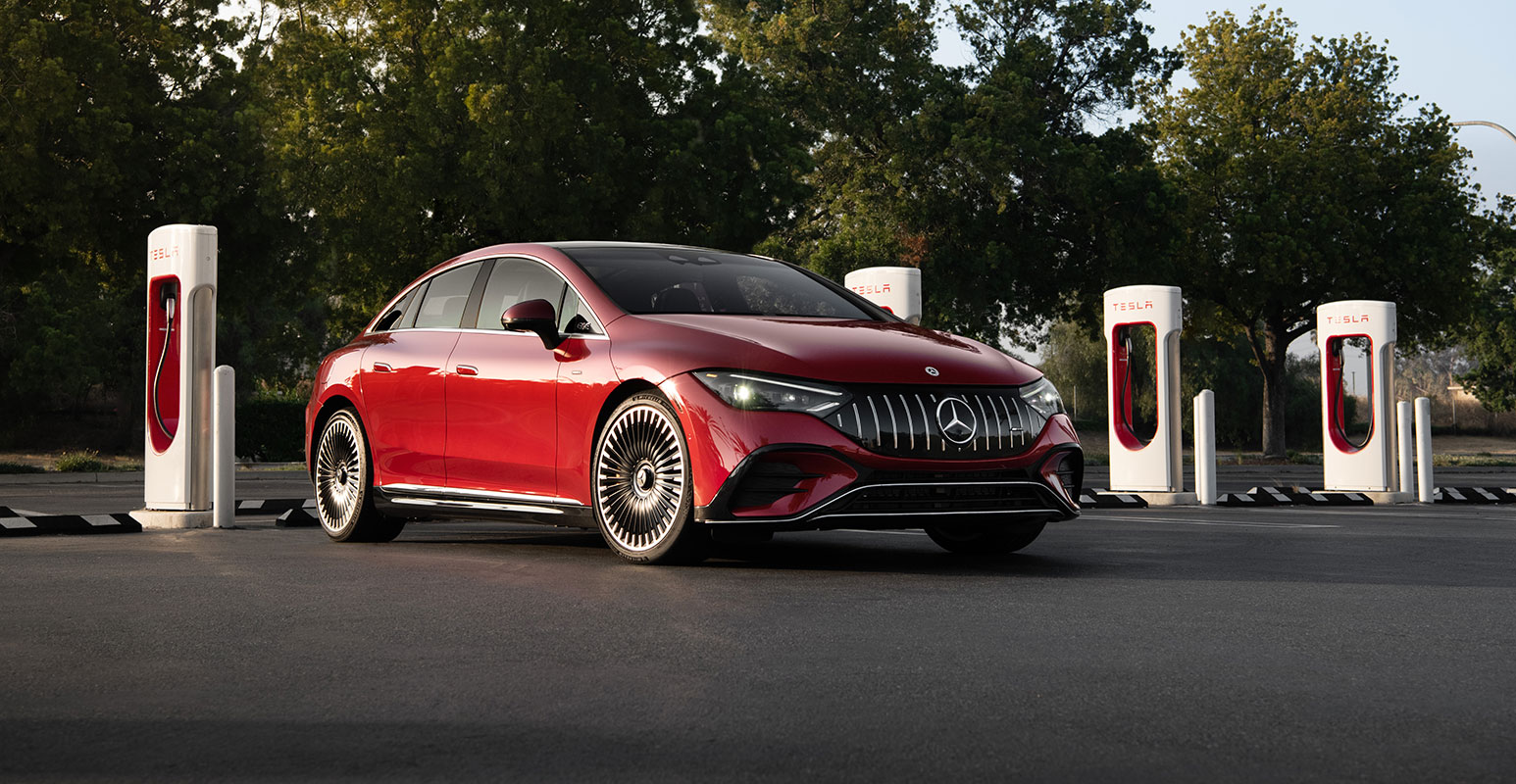A renowned global automaker, Mercedes-Benz, recently declared its dedication to adopting Tesla’s electric vehicle (EV) charging connectors. This collaboration between two significant players in the automotive industry brings Tesla closer to asserting its dominance in the fast-expanding EV charging market. By integrating Tesla’s advanced charging technology, Mercedes-Benz aims to provide its customers with effortless and convenient access to Tesla’s extensive network of Supercharger stations. This action showcases Mercedes-Benz’s commitment to meeting its customers’ evolving needs by offering improved charging solutions and promoting the adoption of electric vehicles.

Mercedes-Benz Embraces Tesla’s Charging Connectors
Starting in 2024, Mercedes-Benz will offer adapters to its customers, enabling them to access Tesla Supercharger stations. These stations utilize Tesla’s North American Charging Standard (NACS) plug and outlet. This move will allow Mercedes-Benz EV owners to charge their vehicles at Tesla Supercharger stations without hassle. Furthermore, by 2025, Mercedes-Benz will begin manufacturing EVs equipped with Tesla’s charging port, eliminating the need for adapters.

Industry-Wide Adoption of Tesla’s Connector
Mercedes-Benz joins other significant automakers in embracing Tesla’s charging connector. Ford, GM, Volvo, Polestar, and Rivian have already adopted Tesla’s connector, rapidly becoming the de facto charging standard in North America and Europe. Mercedes-Benz’s decision pressured Volkswagen and BMW, urging them to follow suit. Volkswagen and Hyundai, Kia, and Stellantis have already confirmed discussions with Tesla regarding adopting the NACS.
Expanding the EV Charging Network
In addition to adopting Tesla’s charging connector, Mercedes-Benz has announced plans to expand its network of EV charging stations in North America. The company intends to establish 400 hubs with over 2,500 high-power chargers across the region. These charging stations will also be compatible with Tesla’s NACS connector. Globally, Mercedes-Benz aims to install 2,000 hubs equipped with 10,000 chargers, contributing to the growth of the EV charging infrastructure.
Deal of the Day
Anker 737 Power Bank Now Available for $74: Cyber Monday Deal
Collaborations for Enhanced Charging Infrastructure
Mercedes-Benz has been working with ChargePoint and MN8, a solar company, to install chargers in critical cities and along major highways. These charging stations will be accessible to both Mercedes-Benz and non-Mercedes EV owners. The installation of the first set of charging stations is scheduled for the fourth quarter of 2023, offering an extensive charging network for EV users.
Tesla’s Supercharger Network and Market Position
Tesla’s Supercharger network is widely recognized for its superior performance compared to many third-party EV charging stations. While most stations feature Combined Charging System (CCS) plugs or the CHAdeMO charging standard, Tesla’s Superchargers have gained prominence. With 45,000 Superchargers worldwide, including 12,000 in the US, Tesla has established itself as a critical player in the EV charging market. According to the Department of Energy, the company operates nearly 2,000 DC fast-charging stations and 5,000 Level 2 chargers across the United States.
Accessibility for Non-Tesla EV Owners
Initially, Tesla Superchargers were exclusively available to Tesla owners. However, the company expanded access to non-Tesla EVs in Europe. In the US, Tesla’s Superchargers use a proprietary connector, which serves as a competitive advantage. To enable non-Tesla vehicles to access Tesla Superchargers in the US, Tesla introduced the “Magic Dock” device. This device allows the application of a CCS adapter to the proprietary connector, enabling seamless charging for non-Tesla EV owners.
FAQs
Why did Mercedes-Benz decide to adopt Tesla’s EV charging connectors?
Mercedes-Benz recognizes the widespread popularity and performance of Tesla’s Supercharger network. By adopting Tesla’s charging connectors, Mercedes-Benz aims to provide its customers convenient access to these charging stations, enhancing the overall EV ownership experience.
Is Mercedes-Benz the only automaker embracing Tesla’s charging connectors?
No, Mercedes-Benz is not the only automaker adopting Tesla’s charging connectors. Several other major manufacturers, including Ford, GM, Volvo, Polestar, and Rivian, have already transitioned to Tesla’s charging standard, recognizing its advantages and growing market dominance.
How does Tesla’s charging connector differ from other charging standards?
Tesla’s charging connector, known as the North American Charging Standard (NACS), offers superior performance and reliability compared to other charging standards like Combined Charging System (CCS) plugs or the CHAdeMO setting standard. Its smaller size and robust design contribute to a seamless charging experience.
Will Tesla Superchargers be accessible to non-Tesla EV owners?
Yes, Tesla has expanded access to its Supercharger network for non-Tesla EV owners. While initially limited to Europe, Tesla has introduced the “Magic Dock” device in the US, allowing non-Tesla vehicles to access Superchargers using a CCS adapter.
What are Mercedes-Benz’s plans for expanding its EV charging network?
Mercedes-Benz intends to establish 400 hubs with over 2,500 high-power chargers across North America. These hubs will be equipped with Tesla’s NACS connector, ensuring compatibility with Tesla Superchargers. On a global scale, Mercedes-Benz aims to install 2,000 Hubs with 10,000 chargers. They are planning to contribute to the growth of the EV charging infrastructure.
Wrap Up
Mercedes-Benz’s decision to adopt Tesla’s EV charging connectors marks a significant step towards standardizing charging infrastructure in the EV market. Important automakers’ increasing adoption of Tesla’s NACS connector. Tesla solidifies its position as a dominant player in the EV charging industry. Mercedes-Benz’s commitment to this partnership sets the stage for other German automakers to consider integrating Tesla’s charging technology. The EV market continues to evolve, and collaborations like this will contribute to developing a comprehensive and accessible charging network that benefits EV owners worldwide.

Selva Ganesh is the Chief Editor of this Blog. He is a Computer Science Engineer, An experienced Android Developer, Professional Blogger with 8+ years in the field. He completed courses about Google News Initiative. He runs Android Infotech which offers Problem Solving Articles around the globe.



Leave a Reply